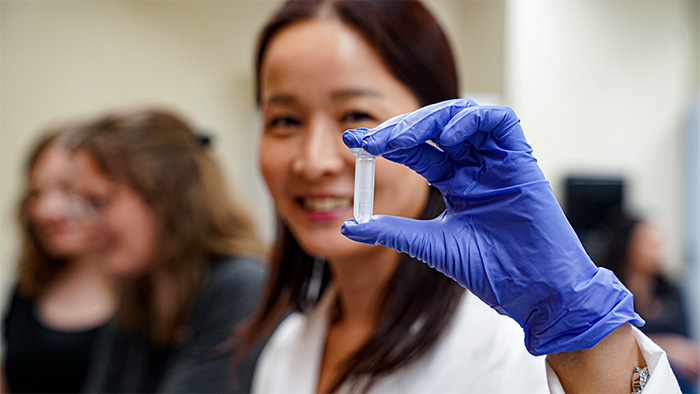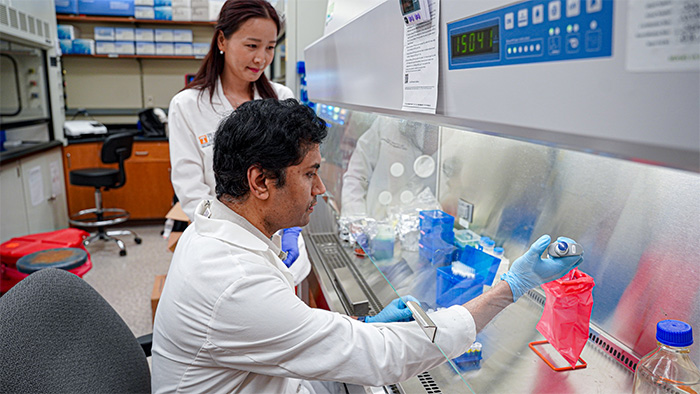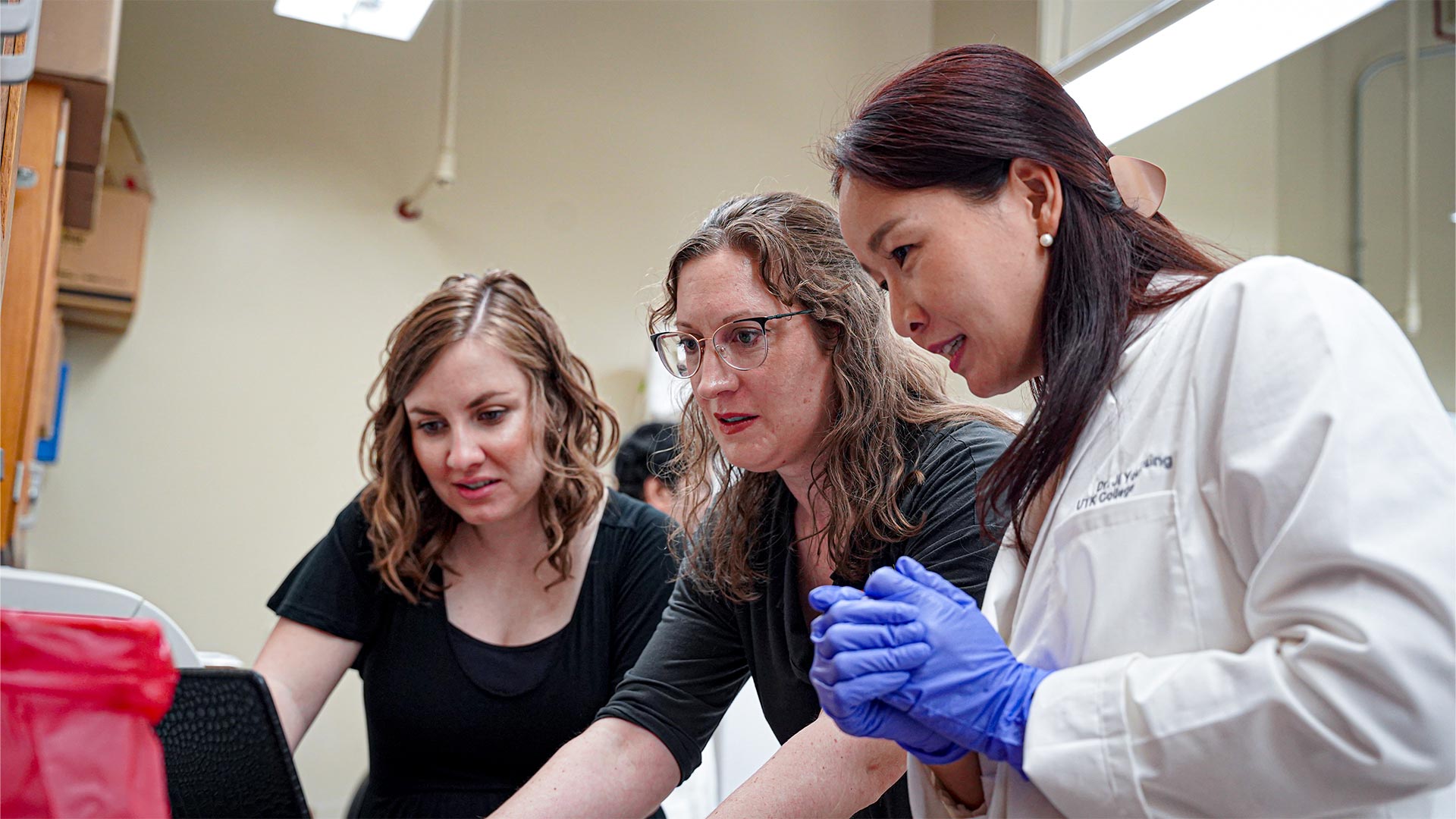“The project started after three local high school students died by suicide in 2022,” Ji Youn Yoo says.
Kristen Ravi, Ph.D., licensed master social worker, assistant professor in the College of Social Work and assistant director of the Child and Youth Development Lab, and Ji Yoo, Ph.D., registered nurse and assistant professor in the College of Nursing, joined forces to create TennWell to combat the mental health issue. Their research brings together mental health and microbiology to explore how stress affects teens’ bodies—right down to the cellular level.
Since the COVID-19 pandemic, researchers have found more teenagers are battling anxiety, depression and suicidal thoughts—issues that affect their emotional well-being as well as their immune systems, digestion and academic performances. In Tennessee, one in three parents say their teen has a mental health diagnosis, according to the Vanderbilt Health Poll. The morbidity and mortality weekly report found that three in four high schoolers reported experiencing at least one adverse childhood event during the pandemic. Statewide data from 2019-2024 Tennessee Comprehensive Assessment Program (TCAP), which assesses Tennessee students’ proficiency in core subjects, shows only 39 percent of students met or exceeded academic expectations in 2024.

“What we’re connecting is kind of unique,” Ravi says. “We’re looking at the biological level of stress to understand what changes are occurring in the body, at the cellular level, with bacteria that can influence mental and physical health.”
By analyzing everything from gut and oral microbiomes to cortisol levels and inflammation, the team hopes to better understand how adversity—and protective factors like a caring adult or safe home life—shapes a teenager’s health. Their ultimate goal: data-driven intervention that schools and community centers can use to support youth mental health.
Yoo visited Knoxville’s Emerald Youth Foundation in Spring 2022 as part of the Introduction Knoxville program, where she had the opportunity to meet the foundation’s director, who raised this issue in our city. The foundation serves over 3,000 students and offers after-school engagement across the city.

“She was very upset and worried about the growing problem. As a nurse and researcher dedicated to community health, I knew we had to do something,” Yoo says.
Using startup funds from the College of Nursing, Yoo launched a small pilot study in partnership with Emerald Youth. The project expanded with help from a UT Grand Challenge Grant, which supports innovative, community-focused research projects that address key issues in rural development, addiction and K–12 education across Tennessee.
“It’s a really sad story that brought this to our attention,” Ravi says. “Our goal is to pinpoint these problems clearly and create personalized solutions to support young people in East Tennessee.”
TennWell’s biological component includes collecting hair samples to track cortisol, saliva for oral microbiomes, skin keratin to estimate vegetable consumption, stool samples for gut diversity and a finger prick for inflammatory markers. These samples from Knoxville teenagers give a fuller picture of how chronic stress and daily hardship affect teenagers’ bodies.
For many Knox County teens, especially those who live in rural areas, food insecurity, housing instability and limited access to mental health resources are real barriers. And no two students have the same experiences, which makes applying broad solutions difficult.

“Even with this uncertainty, we know it’s important to move forward,” Yoo says. “The need is urgent, and waiting for a perfect answer could mean missing the chance to help these young people now.”
Recruiting teenagers for such an in-depth study also proved a challenge, especially because it involves blood, saliva and stool samples. The team is also researching participants’ perceptions of the study itself—insights they’ll share in future research publications.
“It requires teenagers to talk about their stress, trauma and personal challenges, along with providing samples that may make them uncomfortable,” Yoo says. “When a student chooses to take part, they become more than just participants—they become agents of change.”
Partnering with Emerald Youth has allowed the research team to build trust and meet teens in comfortable, familiar spaces. Support from the UT System’s Grand Challenge Grant has been essential, according to Yoo and Ravi.
“UT is responsible for engaging with the community to promote the well-being of all Tennesseans,” Ravi says. “That’s our call to action and our commitment.”



